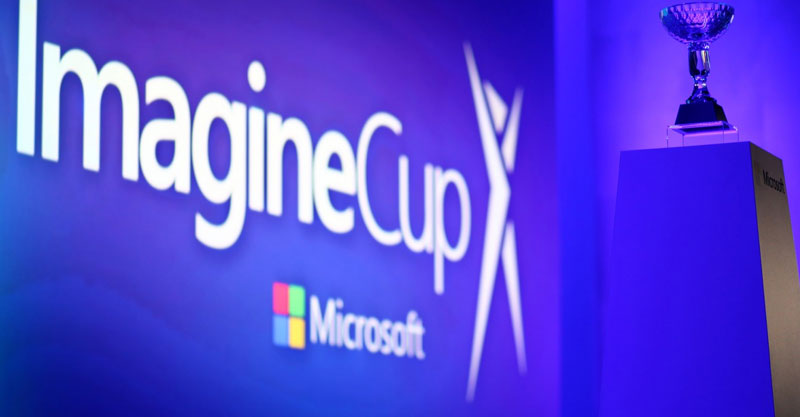Microsoft and Higher Education Commission (HEC) collaborated to bring Microsoft’s Imagine Cup to Pakistan. It is the world’s most renowned technology competition for students. Started in 2003, Microsoft’s Imagine Cup is the ideal opportunity for the youthful innovators, from around the world, to give express their imagination, bring ideas to life and win $100,000.
HEC’s commitment to the academia and students is reflected as Microsoft drives the Imagine Cup to highlighted Pakistan’s position on the leaderboards – Pakistan ranks as the TOP country in the Middle East and Africa cluster, with the highest number of project submissions and competitors in Imagine Cup. Pakistan also ranks 5th worldwide, in the same category.
About Imagine Cup
Imagine Cup is held annually by Microsoft Corp., bringing together the young technologists to play their part in resolving some of the world’s toughest challenges. Not only a competition, imagine cup serves as a platform for teams to present their solutions to the world. All technology projects are welcome in this competition; it is no longer bound by categories.
In Pakistan, students from various universities participated enthusiastically, as the competition received an overwhelming response. A lot of remote and underprivileged areas were targeted in the drive for Imagine Cup, particularly Sahiwal, Mianwali, Khuzdar and Jamshoro. Students were initially evaluated in Regional finals, held in different cities and the best teams competed to win the National Finals. The evaluations for both Regional and National Finals were done according to the rules, regulations and criteria listed in 2017 Imagine Cup Competition.
The winning team of the Imagine Cup National Final from Pakistan was ‘Positive Zero’ from Bahria University, Karachi. The victory was announced during a grand ceremony. The team has built a Microsoft Azure cognitive service-based engine that helps in writing code through voice commands. The team will represent Pakistan in the advanced stages of the competition on a global scale.
The Director of Microsoft’s Enterprise & Partner Group Segment – Mr. Abid Zaidi commented on the occasion; “The link between education, attainment and economic growth has never been clearer. Around the world, the communities where educational excellence is a high priority, create the most economic opportunities. The foundation for sustainable economic growth for the future is being laid, through this initiative.”
The Country Head of Microsoft – Mr. Shahzad Aslam Khan stated: “Talent has no boundaries! Any student can derive great benefits from the Imagine Cup, as it provides world-class opportunities and support for the youth, nurturing their true potential and giving them a chance to do something extraordinary and accelerate growth”.
Director General IT – Mr. Anwar Amjad appreciated the event and commented that; “The platform provided by HEC to the students is truly unique in as it promises valuable exposure that they need to take the next steps in Academic life, helping them with a successful transition into their professional careers.”
Executive Director at HEC – Dr. Arshad Ali stated that: “HEC-Microsoft Strategic Education Alliance has contributed greatly in producing graduates, who are well-equipped and qualified, not only to handle the pressures of the practical world, but have the vision to carve their own avenues with a scientific approach, to tackle complex issues.”
The Chairman HEC – Prof. Dr. Mukhtar Ahmed expressed his happiness and said; “We appreciate the valuable support of Microsoft in this initiative, as Higher Education Commission strives to nurture the students’ talents through this annual competition. This is a great way to evolve a rich and modern academic culture in Pakistan, as we integrate global advancements and cutting-edge tools to bring the domestic curriculum and learning at par with the leading universities of the world. Thus, we are empowering our students to contribute and compete in the global workforce”.



